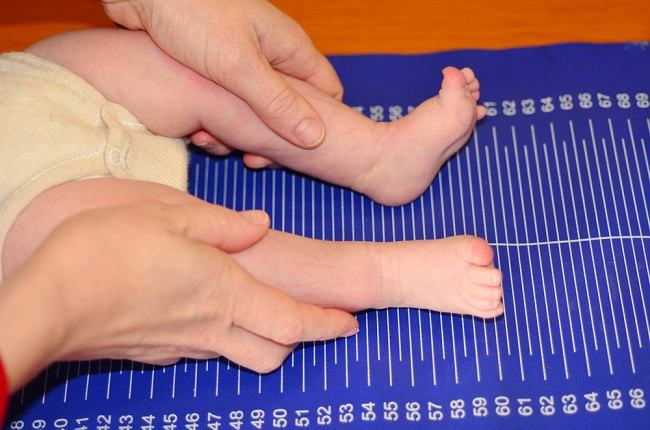Alendronate is a drug used to prevent and treat osteoporosis, especially in postmenopausal women. This drug is also used in the treatment of Paget's disease, which is a disorder in the process of bone regeneration that causes bones to become brittle and crooked.
Alendronate is a bisphosphonate drug. This drug slows bone loss by inhibiting bone resorption by osteoclasts. That way, bone strength will be maintained and the risk of fractures can be reduced.

In addition to treating postmenopausal osteoporosis, alendronate is also used to treat osteoporosis triggered by the use of corticosteroid drugs. The risk of osteoporosis due to corticosteroid use will increase with corticosteroid treatment for more than 3 months and at high doses.
alendronate trademark: Alovell, Osteofar
What is Alendronate
| group | Prescription drugs |
| Category | Bisphosphonates |
| Benefit | Treats postmenopausal osteoporosis, osteoporosis induced by long-term use of oral corticosteroids, and Paget's disease. |
| Used by | Mature |
| Alendronate for pregnant and lactating women | Category C: Animal studies have shown adverse effects on the fetus, but there are no controlled studies in pregnant women. Drugs should only be used if the expected benefit outweighs the risk to the fetus. It is not known whether alendronate is absorbed into breast milk or not. If you are breastfeeding, do not take this medicine without consulting your doctor first. |
| Drug form | Tablet |
Warning Before Taking Alendronate
Alendronate should not be taken carelessly. Some things to consider before taking this drug are:
- Tell your doctor about any allergies you have. Alendronate should not be taken by someone who is allergic to this drug or to other bisphosphonate drugs, such as ibandronate.
- Tell your doctor if you have difficulty swallowing, difficulty sitting up straight, or low levels of calcium in your blood (hypocalcemia). Alendronate should not be given to patients who are suffering from this condition.
- Tell your doctor if you have or are currently suffering from peptic ulcers, kidney disease, anemia, heart failure, heart disease, dental, gum and mouth disease, blood clotting disorders, hypertension, or cancer.
- Tell your doctor if you smoke or are undergoing chemotherapy or radiotherapy.
- Tell your doctor that you are taking alendronate if you plan to have dental treatment or surgery.
- Tell your doctor if you are taking certain medications, supplements, or herbal products.
- Tell your doctor if you are pregnant, breastfeeding, or planning a pregnancy.
- Have regular dental and oral examinations and see a doctor immediately if you experience jaw pain during treatment with alendronate, as this drug can cause jawbone damage.
- See your doctor right away if you experience an allergic drug reaction, overdose, or more serious side effect after taking alendronate.
Dosage and Rules of Use Alendronate
Treatment with alendronate will generally be carried out in the long term, which is between 3-5 years, depending on the patient's condition. Alendronate is available in the form of tablets of 5 mg, 10 mg, 35, mg, 40 mg, and 70 mg.
Here are alendronate dosages based on the condition you want to treat:
- Condition: Postmenopausal osteoporosis
For treatment, the dose is 10 mg, once a day, or 70 mg, once a week. For prevention, the dose is 5 mg, once a day, or 35 mg, once a week.
- Condition: Osteoporosis induced by the use of corticosteroid drugs
Dosage 5 mg, 1 time a day. Especially for menopausal women who do not receive hormone replacement therapy, the dose is 10 mg, 1 time a day.
- Condition: Paget's disease
Dosage 40 mg, once daily, for 6 months. Treatment can be repeated if needed.
How to Take Alendronate Correctly
Follow the doctor's advice and read the information listed on the drug packaging label before taking alendronate. Do not reduce or increase the dose without consulting your doctor first.
Alendronate tablets are recommended to be taken some time after getting up in the morning or 1 hour before breakfast. Swallow the tablet whole with the help of a glass of water. Do not mix alendronate with drinks other than water.
This medicine should not be taken with soft drinks, coffee, tea, milk, or fruit juices. Do not suck, crush or chew the medicine.
Do not lie down after taking this medicine. You are required to stand or sit up straight for 1 hour after taking alendronate. If you are taking other medications, supplements, vitamins, or antacids, wait at least 1 hour after taking alendronate.
It is recommended to take alendronate at the same time every day for maximum benefits.
During treatment with alendronate, your doctor will advise you to maintain a healthy diet and lifestyle to meet the needs of vitamin D and calcium.
If you forget to take alendronate, wait until the scheduled consumption the next day. Do not double the dose to make up for a missed dose.
Store alendronate tablets in a closed container in a cool room. Protect this medication from direct sunlight, and keep it out of the reach of children.
Alendronate Interactions with Other Drugs
The following are the effects of drug interactions that can occur when alendronate is used with other drugs:
- Increased risk of injury or irritation of the gastrointestinal tract when used with deferasirox, aspirin, or other nonsteroidal anti-inflammatory drugs (NSAIDs)
- Decreased levels of calcium in the blood (hypocalcemia) when used with etelcalcetide
- Decreased absorption of alendronate in the body when used with antacids or calcium supplements
Side Effects and Dangers of Alendronate
Some of the side effects that may appear after taking alendronate are:
- Constipation or constipation
- Diarrhea
- Bloating or stomach pain
- Nauseous
- Bone pain, muscle pain, or joint pain
Check with your doctor if the side effects above don't go away or get worse. Immediately see a doctor if there is an allergic reaction to the drug or a more serious side effect, such as:
- Osteonecrosis of the jaw bone, which can be characterized by symptoms such as tooth loss and pain or swelling in the jaw
- Low levels of calcium (hypokalemia), which can be characterized by symptoms such as muscle stiffness, and tingling or a feeling like pins and needles around the mouth, fingers, or toes
- Irritation and sores in the esophagus, which can be characterized by a burning sensation in the chest (heartburn), difficulty swallowing, pain when swallowing, or vomiting blood
- Very severe muscle, bone, joint or leg pain









